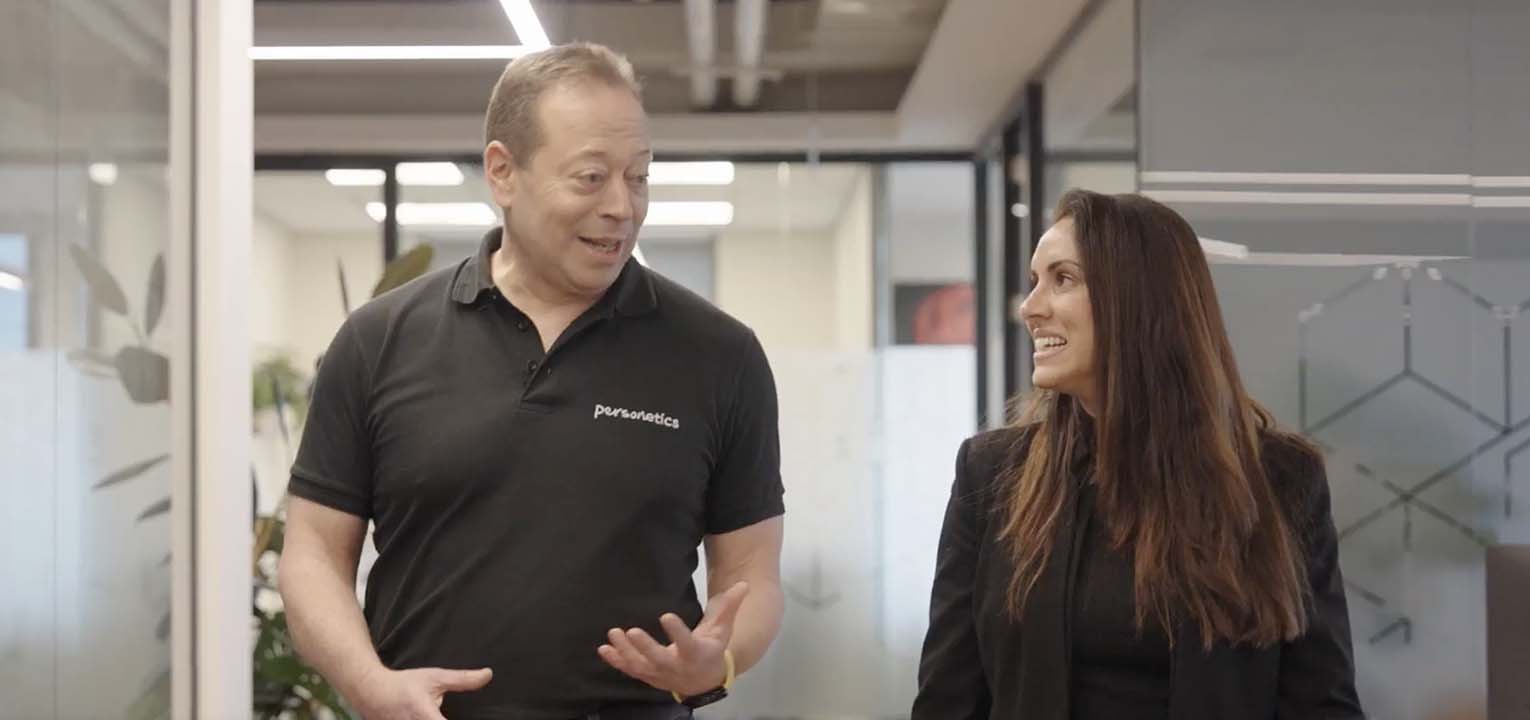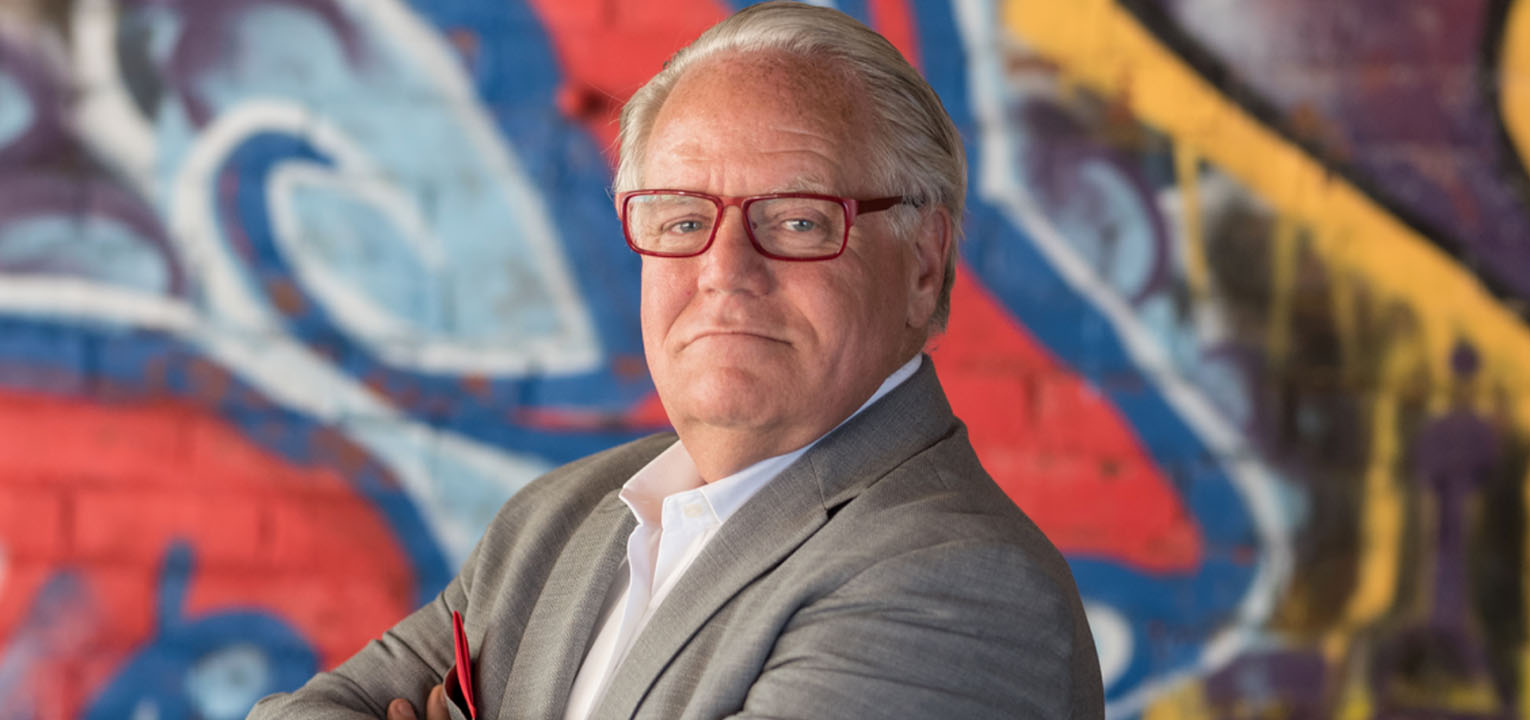April 22, 2021
The Infinite Game of Personalization

Hyper-personalization, the most recent iteration in the evolution of personalization over the last 15 years, is becoming the battleground on which banks and fintechs compete to retain customers and increase business impact. Personalization in financial services has transformed from an empty term that offered little value to customers, and little revenue gain for banks, to a highly promising business impact strategy. What changed, and what’s next?
Banks used to only measure the impact of what they called ‘personalization’ by how long customers would spend on digital channels. To increase those numbers, they focused on process automation. Think of a ‘good morning’ message with your name that appears when you log in to your banking app or the ability to complete an action in two clicks rather than eight.
Of course, there is nothing truly personal about that. The technology may have been cutting-edge, but it failed to provide a meaningful, measurable impact. Until now.
The difference between what personalization in financial services used to mean and what it means today is not about the technological advancement that optimizes or automates interactions. Technology is just a means, not the end goal. Todays’ technology has given banks the ability to truly understand better their role—or what their role should be—in their customers’ lives. Today, banks can use transactional data to ask themselves what value they should provide to their customers and how to monetize it. Digital usage is only growing. J.P. Morgan Chase reported a 6% YOY increase in digitally active customers and a 10% increase in active mobile customers. Customers increasingly rely on algorithm-driven services to help them make financial decisions and conduct financial activities. Globally, Forrester reports a 35% increase in digital banking usage. Given all that, monetization of digital experiences is essential. How can banks do it?
There’s no impression like the first impression
Take the customer’s first step in their banking journey: onboarding. Historically, and especially in pre-pandemic times, branches played a central role in delivering an exceptional onboarding experience, which took the shape of a face-to-face banker session that included customer needs profiling, account usage promotion enrollment in digital tools. Together these drove higher engagement, balances, and cross-sales over time.
Today, with 89% of U.S consumers intending to use mobile channels as their primary form of banking, according to Business Insider, banks are investing in replicating that delightful onboarding experience digitally. And personalization plays a key role. With personalization, banks can tailor onboarding experiences to the customer’s status in the onboarding process, for example, suggesting they set up a direct deposit when a recurring payment comes in. They can base early customer interactions on real transaction data, for example, suggesting that they save for a goal when funds are transferred from an external institution. These early experiences establish rapport between bank and customer, demonstrating to the customer that they are genuinely known and cared for.
From greet to grit: Building strong, profitable relationships
And delightful early experiences are just the tip of the personalization iceberg. Once banks understand its potential, the question becomes how they adopt a smart, proactive, and knowledgeable approach to monetize it?
At Personetics, our vision is Self-Driving Finance. Just like self-driving cars, Self-Driving Finance is a continuum of capabilities that enables banks to provide retail, small business, and affluent customers with varying degrees of guidance in managing their finances, ranging from real-time insights to personalized recommendations and automated money management. Our “Engage” business solution creates deep connections between customers and banks and helps customers stay on top of their finances by providing real-time, personalized, and proactive insights and advice.
Our “Act” Solution, automated, self-adjustable wellness programs, use customer transaction data to bring banks to a place where they can think and act on behalf of their customers and help them achieve their financial goals. We help banks run automated or semi-automated financial wellness programs for debt reduction, investment, saving, and even putting aside tax funds for small business owners.
These solutions are completely self-adjustable, so customers do not need to set up goals, thresholds, or time limits. They do not have to do anything. It is a seamless, frictionless, invisible banking service that helps customers better understand and manage their finances, increase their financial wellbeing, and—especially at this moment—rebuild their financial resilience.
Finally, our “Engagement Builder” creation & management console helps banks fully customize their offerings—after all, they know their customers best.
Doing all this for customers increases trust because it revives a social contract of sorts between customer and bank. Only then, once trust has increased, can the bank offer additional products and services. The bank can then reach the type of business results that we see at Personetics: six times higher conversion rates than most banks today reach. Because customers are deeply understood, and their journey becomes truly personal.
David Sosna, Personetics’ Co-Founder & Chief Executive Officer.
Personalize for a limitless future
Personetics strives to actualize a world of “Self-Driving Finance” where banks proactively act on behalf of their customers to better monetize relationship value.
For decades banks have used all sorts of marketing analytics systems that are disconnected from financial, transactional data and only reach 2-4% conversion rates in most cases. The COVID-19 pandemic brought a 35% increase globally in digital banking usage; how come we do not see that increase in banks’ annual reports?
Something is missing, and it is the banks’ biggest goldmine. At Personetics, we believe that any bank’s greatest asset is its own customers’ financial, transactional data. When they efficiently use it, they can better sell to and service their customers, increasing customer engagement and revenue, and become the leaders of tomorrow. Personalization plays a significant part in that limitless future.
In the worlds of Simon Sinek, author of The Infinite Game: “Leaders who embrace an infinite mindset build stronger, more innovative, more inspiring organizations. Ultimately, they are the ones who lead us into the future.”
To learn more about how Personetics can help you lead the infinite game of personalization in financial services, click here.
Want to explore how your bank can harness the power of AI to engage and serve customers? Request a demo now
Latest Posts

Why Banks Need to Move from Product to Experience Provider — A Conversation with David M. Brear, CEO of 11:FS

What is Cognitive Banking?

Beyond Digital: Jim Marous on Why Banking Must Become Cognitive

Dorel Blitz
VP Strategy & Business Development
Dorel Blitz brings over ten years of experience in global strategy and business development in the financial services industry. Dorel joins Personetics from KPMG, where he headed the Fintech sector at KPMG Israel and a member of the global Fintech practice. In this role, Dorel was instrumental in establishing KPMG’s collaborative relationships with global financial institutions and leading Fintech companies including Personetics. He also acted as a subject matter expert and led advisory projects involving digital transformation strategies with financial services organizations. Prior to joining KPMG, Dorel led the Innovation & Fintech practice at Bank Leumi, and earlier in his career he headed the banking & finance division at global research firm Adkit.









